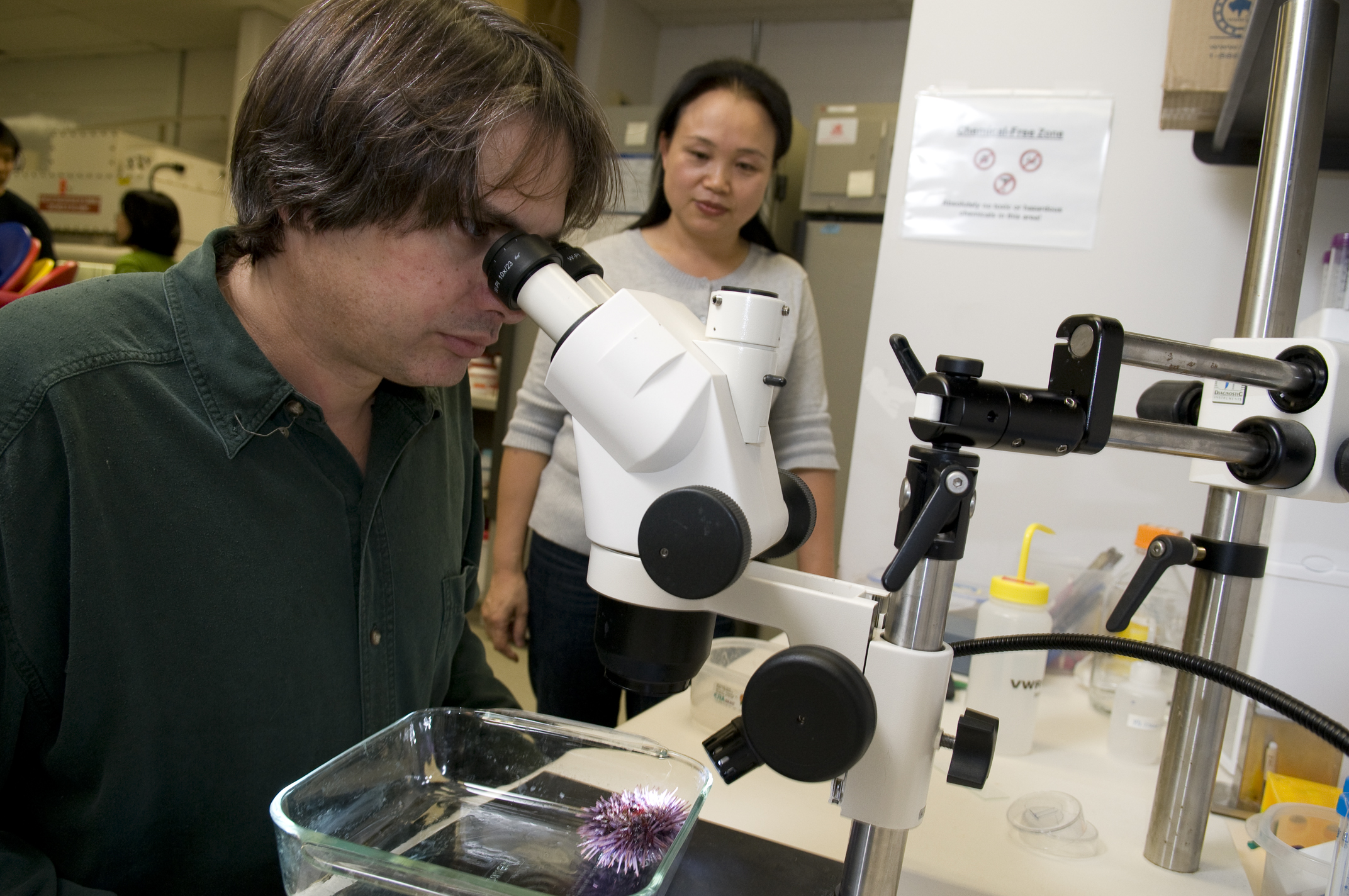Government Investment Puts State-of-the-Art Tools in Hands of SRI Scientists
By Alisa Kim
The Canada Foundation for Innovation, the country’s largest funding agency for research infrastructure, has awarded $771,586 to three Sunnybrook Research Institute (SRI) scientists through its Leaders Opportunity Fund.
The program aims to help Canadian universities attract and retain world-class researchers by providing faculty with the fundamentals to carry out cutting-edge research. The award is matched dollar for dollar by the province’s Ministry of Research and Innovation, bringing total funding awarded to $1.5 million. The grants will pay for the equipment, buildings, laboratories and databases required to conduct research, in contrast to operating grants, which support day-to-day costs of running a lab.
“Technology is everything in this field,” says Dr. Jonathan Rast, a scientist in molecular and cellular biology at SRI and one of the three award recipients. “Different labs around the world complement each other, but you can have a situation where other labs can do things more efficiently than you. You run the risk of having as good an idea as everyone else, but they’re the ones doing interesting stuff because they have the equipment to do it and you don’t.”
Rast, who is also a professor in medical biophysics at the University of Toronto, is studying how genes operate in the immune response of the purple sea urchin, whose immune system bears similarities to our own. He will use the award, worth $117,435, to examine how the microbial environment of the sea urchin gut is controlled by its immune system.
“The grant provides us with microscopy equipment that we’ll use to film immune reactions in the [urchin] larvae. We can watch all the cells in the organism, and how they behave in response to an immune reaction. It also gives us equipment that allows us to quantify gene activity; we can watch how genes go on and off during the course of a simple immune response,” says Rast.
His colleague, Dr. Bojana Stefanovic, an imaging scientist at SRI and a professor in medical biophysics at U of T, seeks to understand the link between brain function and the vascular state. She was awarded $254,151, the bulk of which she’ll use to buy the latest two-photon fluorescence scanning laser microscope so that she can study how fine blood vessels in the brain support abnormal activity in preclinical models of Alzheimer’s disease.
“The microscope allows imaging not just of the surface of the brain, but up to one millimetre below the surface; relative to other optical microscopy methods, that’s quite deep,” says Stefanovic. “We can look at the effect, in real time, of neuronal firing patterns on the smallest brain vessels. It’s a very powerful platform for doing investigation into brain function.”
In addition to furthering her own work, Stefanovic says acquiring the equipment will stimulate collaborative research: “A unique strength of this infrastructure is that it complements a lot of the imaging systems we already have at SRI. It brings a new type of information to our studies, not just in my work, but in others’ work as well—at SRI and among our colleagues downtown.”
The third of SRI’s Leaders Opportunity Fund award winners is Dr. Marc Jeschke. Recruited from the Shriners Burns Hospital for Children and University of Texas Medical Branch, Jeschke joined SRI in May as a senior scientist in the Trauma, Emergency and Critical Care Research Program. He is also the medical director of the Ross Tilley Burn Centre at Sunnybrook and a professor in surgery at U of T.
Jeschke aims to determine what causes stress-induced diabetes. Specifically, he will look at how burns cause cellular changes that lead to dysfunction in how the liver metabolizes glucose.
He will receive $400,000, which will enable him to establish his laboratory and purchase an imaging system that lets him study changes in cell organelles that produce insulin resistance in the body.
“I’m very honoured and humbled,” says Jeschke of the award. “It opens the doors to start my research in partnership with many outstanding scientists at SRI. We have a unique setup here at Sunnybrook with the burn unit, the critical care facilities and the division of plastic surgery, all of which gives us patient access. The award is wonderful for the group.”



